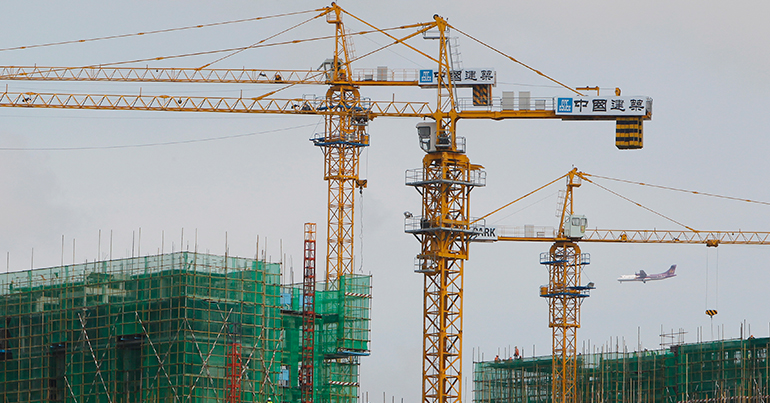Cambodia’s economy is projected to grow by 6.9% this year, despite earlier predictions that cited political uncertainty as the cause for it growing at a rate of just 6.8%

The World Bank released a report on Wednesday that forecast Cambodia’s economy to not be slowing down anytime soon, predicting that the Kingdom will see a 6.9% growth for 2017 despite earlier predictions stating it would be less.
For the past six years, Cambodia’s economy has grown at a steady pace of 7% per year. But experts from the World Bank had warned earlier in the year that the country would take a hit and would drop to 6.8%, citing uncertainty around next year’s election as the cause.
With the 6.9% projected growth, however, they are singing a much lighter tune.
“The outlook remains positive,” the World Bank was quoted as saying in the report.
Despite fewer exports coming from the textile trade and the construction industry also beginning to slow, the country instead saw a boom in other manufacturing exports and a growing influence from the tourism sector.
It should not be surprising to learn that the two industries that are proving to be staples in Cambodia’s economic backbone are also industries that are largely supported by Chinese investment, particularly with respect to tourism.
Chinese influence in the Kingdom is something that has come to be of greater importance in recent years, being for the benefit of both Prime Minister Hun Sen and Chinese Premier Xi Jinping.
For China, Cambodia is a necessary piece in building out their ‘one belt, one road’ trade route that will stretch across Asia and into parts of Africa. And in exchange, China has become Cambodia’s largest aid donor and foreign investor.
Chinese aid will also prove to be increasingly important for Hun Sen in the coming months, as both the European Union (EU) and the US – two markets that hold some of the country’s biggest trade agreements – have recently announced the possibility of imposing sanctions should the recently dissolved opposition party, the CNRP, not be reinstated.
In 2016, the EU accounted for 40% of Cambodia’s exports, most of which came from the garment industry.
The US has already cut election funding and has said they will apply more aggressive moves should the Southeast Asian nation prove unwilling to cooperate with them.
Hun Sen, however, does not seem deterred by these recent aggressions from foreign investors.
“You must remember clearly that if there is any cut of buying orders, it’s all the fault of a group of people of the opposition party,” the prime minister said to a group of garment workers in Phnom Penh on Wednesday, as reported by Reuters.
“Hun Sen won’t die but workers, you will die,” he said.
World Bank projects Cambodia’s economy will continue growing
Cambodia's economy is projected to grow by 6.9% this year, despite earlier predictions that cited political uncertainty as the cause for it growing at a rate of just 6.8%

